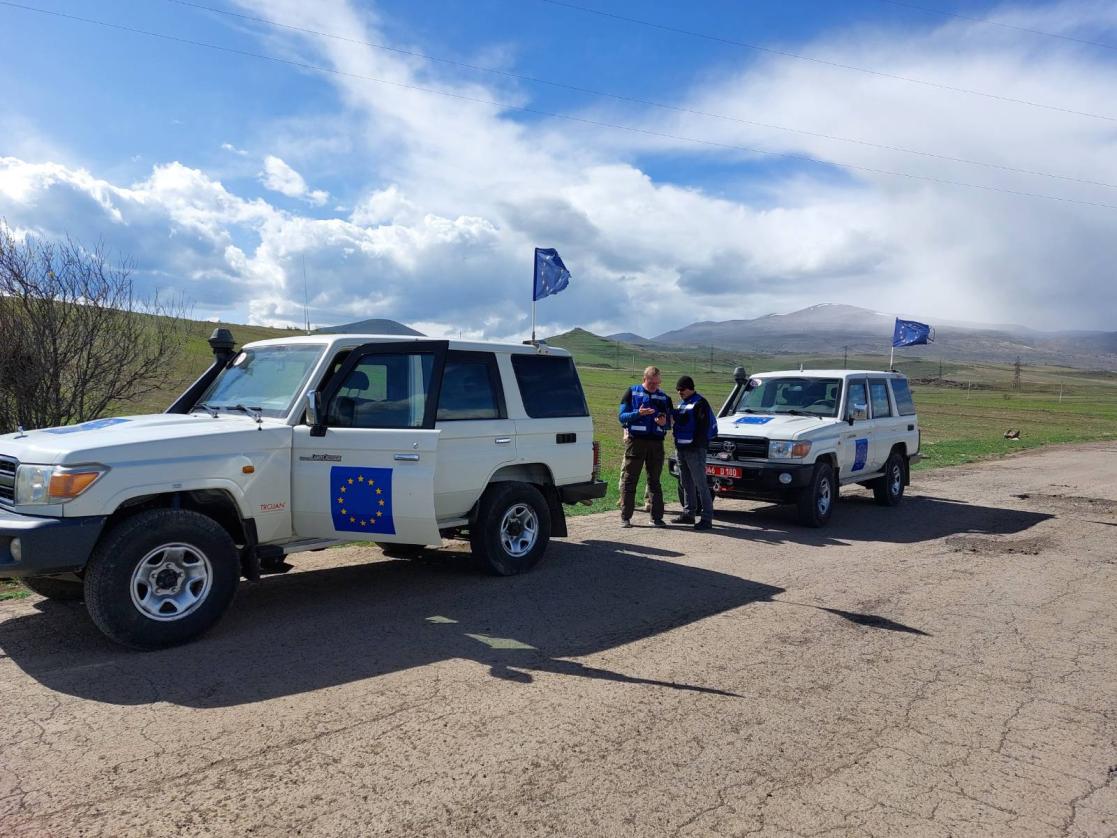Armenia’s National Assembly ratified an agreement on March 20, 2024, concerning the status of the EU civilian monitoring mission in Armenia, with a majority vote of 57 in favor and 27 abstentions.
The EU Mission in Armenia (EUMA) was initially dispatched to the Armenian-Azerbaijani border in October 2022 as a temporary measure following Azerbaijan’s incursion into Armenia the previous September. Later, on February 20, 2023, the Council of Europe formally established and stationed the EU monitoring mission in Armenia for the foreseeable future.
This ratified agreement entails an augmentation of EU monitors at the Armenian-Azerbaijani border, increasing their number from 138 to 209. Furthermore, it extends observer status and immunity to EU personnel, affording them legal protections while operating within Armenia. Their assets, including vehicles and equipment, are exempt from customs inspections and standard registration procedures. The mission’s premises are granted immunity status and are not subject to search. Correspondence and archives are to be kept confidential, accessible only under specified conditions.
Opposition deputies opted for abstention during the vote, voicing apprehensions regarding the lack of constraints on the potential EU observers. This apprehension is primarily rooted in the EU’s unilateral discretion in selecting participants, raising fears of non-EU countries, such as Turkey, being included in the monitoring process. Gegham Manukyan, a parliamentarian from the “Armenia” Alliance, underscored this concern in a pre-vote interview, highlighting the possibility of Turkey’s involvement and the resultant security implications and potential biases that may ensue.




